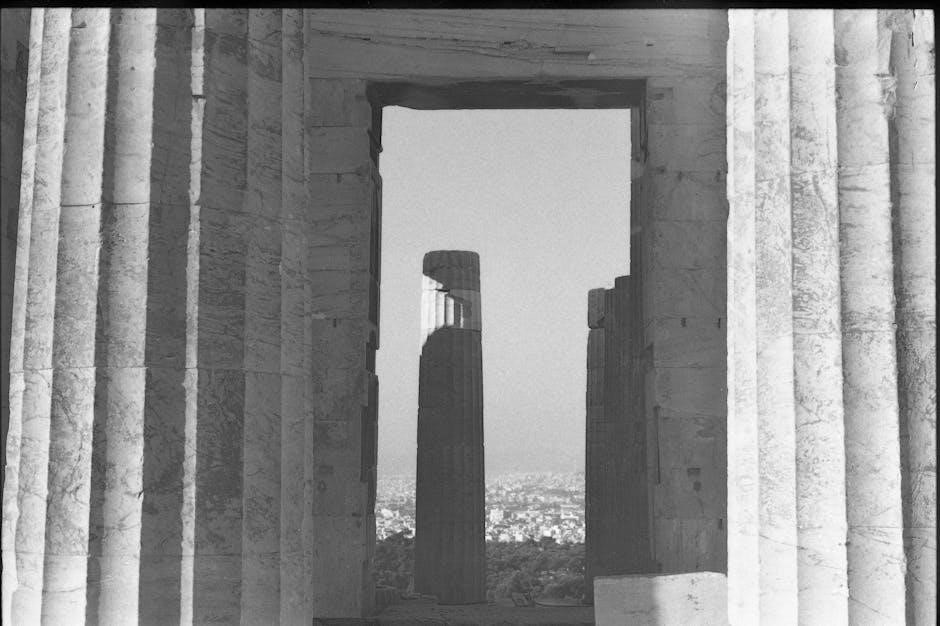Abstract
This abstract explores Fernanda Gallo’s insights on Europe’s future, emphasizing philosophical identity, challenges, and opportunities. It highlights the balance between tradition and innovation, urging ethical and intellectual renewal.
Fernanda Gallo’s work explores the intersection of philosophy and Europe’s future, emphasizing the continent’s philosophical identity. She examines how historical ideas shape contemporary challenges, advocating for a balance between tradition and innovation. Key themes include the ethical and moral underpinnings of European unity, the role of critical thinking in addressing global crises, and the necessity of cultural and intellectual renewal. Gallo also highlights the tension between diversity and cohesion, urging a reimagined vision of Europe rooted in shared values and philosophical inquiry to navigate future uncertainties effectively.
Research Objectives
The research objectives focus on analyzing Fernanda Gallo’s philosophical perspectives on Europe’s future, exploring her arguments on identity, unity, and existential challenges; It aims to evaluate her critique of modern European thought, assess the relevance of Enlightenment values, and examine her visionary proposals for addressing contemporary issues. Additionally, the study seeks to uncover how her ideas align with or challenge existing philosophical frameworks, providing a deeper understanding of Europe’s ethical, cultural, and political trajectory. The objectives emphasize critical analysis and interdisciplinary insights to illuminate the role of philosophy in shaping Europe’s future.
Methodological Approach
Fernanda Gallo’s methodological approach in “Philosophy and the Future of Europe” combines historical analysis with contemporary philosophical inquiry. She employs hermeneutic interpretation of key European philosophical texts to trace the evolution of ideas shaping the continent’s identity. By integrating interdisciplinary perspectives from sociology and political science, Gallo provides a comprehensive framework for understanding Europe’s philosophical underpinnings. Her approach emphasizes critical theory and ethical reasoning to address current challenges, advocating for a synthesis of tradition and innovation. This balanced methodology underscores the role of philosophical thought in navigating Europe’s complex future.
The introduction explores the significance of philosophy in shaping Europe’s identity and addressing its challenges, emphasizing the balance between tradition and innovation for future progress.
Contextualizing the Topic
European philosophy has long shaped the continent’s identity, influencing political, cultural, and social frameworks. Fernanda Gallo’s work explores how philosophical traditions can address modern challenges, fostering unity amid diversity. By examining historical ideas and contemporary issues, her analysis provides a foundation for understanding Europe’s evolving role in a globalized world. This topic is crucial for grasping the interplay between philosophical thought and real-world applications, offering insights into how Europe can navigate future complexities while remaining true to its intellectual heritage.
Historical Background of European Philosophy
European philosophy traces its roots to ancient Greek thinkers like Socrates, Plato, and Aristotle, who laid the groundwork for rational inquiry and ethical reasoning. The Middle Ages saw the rise of scholasticism, blending faith and reason, while the Renaissance revived classical ideals. The Enlightenment emphasized reason, individual rights, and scientific progress, shaping modern thought. Key figures like Descartes, Kant, and Hegel further defined European philosophy, exploring metaphysics, ethics, and political theory. This rich intellectual heritage continues to influence contemporary debates, providing a foundation for addressing Europe’s future challenges.
The Relevance of Philosophy in Shaping Europe’s Future
Philosophy plays a pivotal role in shaping Europe’s future by providing a framework for critical thinking and ethical decision-making. It addresses contemporary challenges like cultural diversity, political unity, and technological advancements, fostering a deeper understanding of shared values. Fernanda Gallo emphasizes how philosophical inquiry can reconcile tradition with innovation, ensuring Europe remains a beacon of intellectual and moral leadership. By exploring existential questions and promoting dialogue, philosophy equips Europe to navigate complexities, fostering unity and resilience in an ever-changing world.
Historical Context of European Philosophy
European philosophy traces its roots to ancient Greek thinkers like Socrates, Plato, and Aristotle, shaping foundational ideas on reason, ethics, and reality. The Middle Ages introduced Christian philosophy, while the Renaissance and Enlightenment brought rationalism and humanism, influencing modern thought.
The Origins of European Philosophical Thought
European philosophical thought traces its origins to ancient Greece, where Socrates, Plato, and Aristotle laid the groundwork for Western philosophy. Their inquiries into ethics, metaphysics, and logic shaped subsequent intellectual movements. The Roman era and medieval period further developed these ideas, integrating them with Christian theology. This foundational legacy continues to influence contemporary European thought, providing a rich framework for addressing modern challenges and envisioning the future, as discussed in Fernanda Gallo’s work on philosophy and Europe’s future.
Key Philosophers and Their Contributions

European philosophy is deeply rooted in the works of influential thinkers such as Plato, Aristotle, and Kant, who shaped ideas on ethics, reason, and metaphysics. Descartes’ rationalism and Nietzsche’s existentialism reshaped modern thought, while Sartre’s concept of freedom influenced contemporary identity. These philosophers’ contributions have laid the foundation for Europe’s intellectual heritage, emphasizing critical inquiry, moral frameworks, and existential reflection. Their ideas continue to inspire debates on Europe’s future, emphasizing the importance of philosophical inquiry in addressing societal challenges and fostering unity amidst diversity.
The Evolution of Philosophical Ideas in Europe
European philosophical thought has evolved significantly, shaped by ancient Greek rationalism, medieval scholasticism, and Enlightenment empiricism. The Renaissance revived classical ideas, while modernity brought existentialism and phenomenology. Contemporary philosophy grapples with globalization, diversity, and technological advancements, reflecting Europe’s dynamic intellectual landscape. Fernanda Gallo’s work underscores the importance of adapting timeless philosophical principles to address modern challenges, emphasizing the need for ethical and intellectual renewal in shaping Europe’s future.
Philosophical Foundations of European Identity
European identity is rooted in philosophical traditions emphasizing reason, democracy, and individual rights, shaped by Enlightenment values and existentialist thought, fostering unity amidst diversity.
Unity in Diversity: A Philosophical Perspective
Europe’s philosophical identity is rooted in the concept of unity in diversity, emphasizing shared values amidst cultural and ideological differences. Fernanda Gallo explores how this principle fosters cohesion while celebrating uniqueness. She argues that diversity enriches collective identity, promoting innovation and resilience. By balancing universal principles with particular traditions, Europe can navigate global challenges. This philosophical framework underscores the importance of inclusivity and dialogue, aligning with Enlightenment ideals of reason and tolerance. Gallo’s perspective highlights unity in diversity as a cornerstone for Europe’s future, ensuring a harmonious coexistence of diverse cultures and ideas.
The Role of Enlightenment Values in Shaping Europe
Enlightenment values such as reason, individual rights, and democracy have profoundly shaped Europe’s identity. These principles, emerging in the 18th century, laid the groundwork for modern political systems, emphasizing freedom and rational inquiry. Fernanda Gallo highlights their enduring relevance, arguing that they remain essential for addressing contemporary challenges. By fostering critical thinking and moral progress, Enlightenment ideals continue to inspire Europe’s pursuit of unity and innovation, ensuring their legacy endures in shaping the continent’s future.
Existentialism and the European Condition
Existentialism offers a profound lens for understanding Europe’s contemporary challenges, emphasizing individual freedom, responsibility, and the search for meaning. Philosophers like Sartre and Heidegger explored human existence’s complexities, resonating with Europe’s identity struggles. Fernanda Gallo’s work highlights how existentialist thought can inspire Europe to embrace authenticity and self-determination, fostering unity amid diversity. By prioritizing ethical awareness and collective responsibility, existentialism provides a philosophical framework for Europe to navigate its future with purpose and resilience, aligning with Gallo’s vision of a morally grounded and intellectually vibrant continent.
The Future of Europe: Challenges and Opportunities
Europe faces challenges like political instability and social divisions but can leverage opportunities from technological innovation and strengthened international collaborations to build a resilient and unified future.
Current Challenges Facing Europe
Europe faces multifaceted challenges, including rising nationalism, economic disparities, and climate change. Philosophically, these issues reflect deeper questions about identity, unity, and ethical responsibility. Fernanda Gallo highlights how philosophical inquiry can address these crises by fostering critical dialogue and reimagining shared values. The continent must reconcile its diverse heritage with modern demands for equity and sustainability, ensuring a cohesive yet inclusive future. These challenges demand not only policy solutions but also a renewed commitment to intellectual and moral reflection.
The Role of Philosophy in Addressing Contemporary Issues
Philosophy plays a crucial role in addressing contemporary issues by providing a framework for critical thinking and ethical decision-making. Europe faces challenges such as political polarization, economic inequality, and climate change, which require nuanced and multifaceted solutions. Philosophical inquiry encourages deeper understanding and analysis of these issues, promoting more informed and ethical responses. By fostering dialogue and bridging ideological divides, philosophy can help develop cohesive strategies that prioritize the common good. Fernanda Gallo emphasizes the importance of integrating philosophical thought into policy-making to ensure that solutions are not only effective but also just and equitable.
Visionary Perspectives on Europe’s Future
Fernanda Gallo envisions Europe’s future as a harmonious blend of philosophical heritage and innovation. She advocates for a unified identity rooted in shared values, emphasizing the importance of ethical leadership and cultural dialogue. Gallo’s perspective underscores the need for Europe to embrace diversity while fostering a sense of collective purpose. She calls for a reimagined European project that prioritizes sustainability, equity, and intellectual freedom. By integrating historical wisdom with forward-thinking policies, Gallo argues that Europe can navigate global challenges and emerge as a beacon of progress and unity in an increasingly interconnected world.
Fernanda Gallo’s Perspective on Europe’s Future
Fernanda Gallo’s work explores Europe’s philosophical identity, emphasizing unity in diversity and ethical renewal. She advocates for a future rooted in enlightenment values and intellectual collaboration.
Overview of Fernanda Gallo’s Work
Fernanda Gallo is a prominent philosopher whose work delves into the intersection of philosophy and Europe’s future. Her writings explore themes of identity, ethics, and cultural evolution, offering a nuanced perspective on how philosophical traditions shape contemporary Europe. Gallo’s analysis emphasizes the importance of historical context while advocating for innovative approaches to address modern challenges. Her work bridges academic rigor with accessible insights, making it a valuable resource for understanding Europe’s philosophical landscape and its potential trajectories.
Key Arguments in “Philosophy and the Future of Europe”
Fernanda Gallo argues that Europe’s future hinges on reclaiming its philosophical heritage, emphasizing Enlightenment values like reason, freedom, and human dignity. She critiques the erosion of ethical frameworks in modern society, advocating for a renewed focus on moral responsibility. Gallo also explores the tension between unity and diversity, proposing that Europe’s strength lies in balancing shared values with cultural pluralism. She calls for intellectual and political leadership to address existential challenges, urging a revival of critical thinking and philosophical inquiry to guide Europe’s path forward in an increasingly complex world.
Critique and Analysis of Her Ideas
Fernanda Gallo’s work offers a compelling vision for Europe’s future, blending philosophical depth with pragmatic insights. Her emphasis on ethical renewal and intellectual dialogue is timely, yet critics argue her proposals may lack concrete implementation strategies. While she effectively highlights the tension between tradition and innovation, some question whether her optimism adequately addresses Europe’s systemic challenges, such as political fragmentation and socioeconomic disparities. Despite these critiques, her call for a unified yet diverse European identity remains a powerful framework for fostering resilience and progress in an uncertain global landscape.

Ethical and Moral Considerations
This section examines the ethical and moral frameworks shaping Europe’s future, emphasizing the role of philosophy in addressing contemporary dilemmas and fostering a unified yet diverse society.
Moral Relativism in Modern Europe
Moral relativism in Europe reflects diverse cultural and philosophical perspectives, challenging universal ethical frameworks. Fernanda Gallo examines how relativism influences contemporary debates on identity, tolerance, and justice. She argues that while relativism fosters pluralism, it risks undermining shared moral foundations essential for cohesion. Gallo advocates for a balanced approach, blending respect for diversity with a commitment to universal ethical principles. This tension between relativism and absolutism shapes Europe’s moral landscape, requiring philosophical dialogue to navigate complexities and promote ethical consensus in an increasingly interconnected world.
The Role of Ethics in European Policy-Making

Ethics plays a pivotal role in shaping European policy-making, ensuring decisions align with moral principles and societal values. Fernanda Gallo emphasizes the importance of integrating ethical frameworks into governance to address issues like inequality, climate change, and technological advancements. By prioritizing justice, transparency, and human rights, ethical policy-making fosters trust and cohesion among diverse European communities. Gallo argues that ethical considerations are not merely theoretical but essential for creating sustainable and equitable policies that reflect Europe’s commitment to democracy and human dignity.
Sustainability and the Ethical Imperative
Sustainability emerges as a cornerstone of Europe’s future, intertwined with ethical responsibilities. Fernanda Gallo underscores the need to balance progress with environmental stewardship, advocating for a moral framework that prioritizes long-term ecological health. She argues that ethical imperatives must guide policy-making, ensuring equitable resource distribution and climate justice. By integrating philosophical principles into sustainability practices, Europe can address challenges like climate change and resource depletion, fostering a harmonious relationship between human activity and the natural world. This approach aligns with the continent’s historical emphasis on ethical reasoning and collective responsibility.

Cultural Identity and Diversity
Cultural identity in Europe is shaped by diverse traditions and philosophies. Fernanda Gallo emphasizes the balance between unity and diversity, highlighting diversity as both a strength and challenge.
The Concept of Cultural Identity in Europe
Cultural identity in Europe is shaped by its rich historical tapestry, encompassing diverse languages, traditions, and values. This identity is both a source of unity and diversity, reflecting the continent’s complex heritage. Historically, Europe has been a crossroads of cultures, leading to a unique blend of shared and distinct identities; As Europe moves forward, the concept of cultural identity becomes crucial in navigating globalization and integration efforts, ensuring that diversity remains a strength rather than a source of division.
Diversity as a Strength and a Challenge
Diversity in Europe serves as both a formidable strength and a significant challenge. Philosophically, it embodies the coexistence of varied cultures, fostering innovation and enriched perspectives. However, managing such diversity can lead to complexities in integration and social cohesion. Fernanda Gallo emphasizes the importance of ethical frameworks to navigate these challenges, ensuring inclusivity and unity. By addressing these issues, Europe can harness diversity’s potential, promoting a harmonious and progressive society that values its multifaceted identity.

Philosophical Perspectives on Multiculturalism
Philosophical perspectives on multiculturalism explore the coexistence of diverse cultures within a unified European framework. Fernanda Gallo emphasizes the ethical imperative of embracing cultural diversity while fostering a shared European identity. She argues that multiculturalism enriches societal cohesion but requires a balance between preserving individual traditions and promoting collective values. Gallo critiques the risks of cultural fragmentation and advocates for dialogue-driven integration. Her work highlights the role of philosophy in navigating the complexities of multiculturalism, ensuring it strengthens Europe’s unity without eroding its diverse heritage.

The Role of Education in Shaping Europe’s Future
Education is vital for Europe’s future, fostering critical thinking and adaptability. Reforming systems to emphasize innovation and inclusivity can empower future generations to address societal challenges effectively.
Education as a Cornerstone of European Identity
Education serves as a vital foundation for European identity, fostering shared values and cultural cohesion. It preserves philosophical traditions while encouraging innovation and critical thinking. By promoting unity in diversity, education equips future generations to address global challenges, ensuring Europe’s continued relevance and moral leadership. Fernanda Gallo emphasizes its role in cultivating ethical awareness and intellectual curiosity, essential for navigating an evolving world. Thus, education remains central to Europe’s identity, bridging past and future.
Reforming Educational Systems for the Future
Reforming educational systems is crucial for Europe’s future, as emphasized by Fernanda Gallo. She advocates for a curriculum that integrates philosophical inquiry, fostering critical thinking and ethical reasoning. Gallo suggests prioritizing interdisciplinary approaches to address complex challenges like sustainability and technological ethics. Educators must adapt to evolving societal needs, promoting lifelong learning and intellectual adaptability. By nurturing a generation capable of navigating uncertainty, education can become a cornerstone of Europe’s resilience and innovation, aligning with the continent’s philosophical heritage of progress and unity.
The Importance of Critical Thinking
Critical thinking is essential for navigating Europe’s complex future, fostering innovation, and addressing societal challenges. It encourages individuals to question assumptions, analyze information, and make informed decisions. By promoting logical reasoning and intellectual curiosity, critical thinking empowers citizens to engage with philosophical ideas and ethical dilemmas. This skill is vital for adapting to global changes, ensuring democratic participation, and sustaining cultural progress. Educating future generations to think critically will enable Europe to embrace diversity, innovate responsibly, and maintain its philosophical heritage while addressing contemporary issues effectively.

Global Perspectives on Europe’s Future
Europe’s future is shaped by global interactions, philosophical traditions, and opportunities for collaboration, balancing cultural identity with international cooperation to address shared challenges.
Europe in the Context of Globalization
Europe’s role in globalization is shaped by its historical influence and philosophical underpinnings. Fernanda Gallo argues that Europe must balance its unique identity with global interconnectedness, emphasizing ethical leadership and cultural exchange. She highlights the tension between preserving sovereignty and embracing interdependence, urging Europe to champion multilateralism and human rights. Gallo’s perspective underscores the need for philosophical reflection to navigate globalization’s complexities, ensuring Europe remains a beacon of democracy and intellectual inquiry in an increasingly interconnected world.
Comparative Analysis with Other Regions
Europe’s philosophical trajectory contrasts with regions like Asia, where collectivist traditions dominate, and North America, which emphasizes individualism. Fernanda Gallo highlights Europe’s unique blend of Enlightenment values and existentialist thought, distinguishing it from the pragmatic approaches of other regions. While Asia focuses on economic growth and North America on innovation, Europe’s emphasis on ethical policy-making and cultural integration offers a distinct framework for addressing global challenges. This comparative lens underscores Europe’s potential to lead in fostering unity amidst diversity, setting it apart from other regions’ priorities.
Opportunities for Global Collaboration
Europe’s philosophical heritage offers a robust foundation for global collaboration, fostering dialogue on shared ethical and intellectual challenges. By engaging with diverse cultures and ideologies, Europe can promote mutual understanding and innovation. Fernanda Gallo emphasizes the potential for cross-border philosophical exchanges to address global issues like climate change and technological ethics. Such collaborations can strengthen Europe’s role as a mediator and thought leader, ensuring a harmonious balance between cultural diversity and collective progress.
In conclusion, Fernanda Gallo’s work underscores the vital role of philosophy in shaping Europe’s future, emphasizing ethical renewal and intellectual adaptability to address contemporary challenges and foster unity.
Recap of Key Arguments
Fernanda Gallo’s work underscores the significance of philosophical inquiry in navigating Europe’s future. She advocates for a renewed emphasis on ethical reasoning, cultural unity, and intellectual innovation. Gallo critiques modern philosophical trends, arguing for a balance between tradition and progress. Her vision emphasizes the importance of education and critical thinking in fostering a cohesive European identity. By exploring historical and contemporary philosophical frameworks, Gallo provides a comprehensive analysis of Europe’s challenges and opportunities, urging stakeholders to embrace ethical and moral responsibility in shaping a sustainable future.
Final Thoughts on Europe’s Philosophical Future
Europe’s philosophical future lies in its ability to harmonize tradition with innovation, fostering a unified yet diverse identity. Fernanda Gallo’s work emphasizes the need for ethical and intellectual renewal to address contemporary challenges. By embracing critical thinking and interdisciplinary dialogue, Europe can navigate complexities like globalization and technological advancement. The integration of philosophical inquiry into policy and education will be pivotal in shaping a resilient, morally grounded future. Ultimately, Europe’s philosophical legacy must evolve to inspire global collaboration and ensure its continued relevance in an ever-changing world.
Call to Action for Stakeholders
Stakeholders must prioritize philosophical inquiry to navigate Europe’s challenges. Policymakers should integrate ethical reasoning into decision-making, while educators must foster critical thinking. Citizens should engage in dialogue, embracing diversity and innovation. Collaboration across sectors is essential to align actions with shared values, ensuring a cohesive and resilient Europe. By championing philosophical principles, stakeholders can drive meaningful change, securing a future rooted in unity, sustainability, and intellectual growth.

References
This section lists primary sources like Fernanda Gallo’s “Philosophy and the Future of Europe,” secondary analyses, and additional readings for deeper exploration of Europe’s philosophical trajectory.
Primary Sources
Fernanda Gallo’s seminal work, Philosophy and the Future of Europe, serves as the primary source for exploring her philosophical framework. Her book delves into the intersection of European identity, ethical dilemmas, and existential challenges. Additionally, her lectures and interviews provide direct insights into her arguments about unity, diversity, and the role of philosophy in shaping Europe’s trajectory. These primary materials are essential for understanding her critique of modernity and her visionary perspectives on sustainability and cultural identity, offering a comprehensive foundation for analyzing her contributions to European philosophical discourse.
Secondary Sources
Secondary sources provide critical analyses and interpretations of Fernanda Gallo’s work, offering diverse perspectives on her philosophical arguments. These include scholarly articles, book chapters, and essays that explore her ideas on Europe’s future, ethical frameworks, and cultural identity. They often contextualize her theories within broader philosophical traditions, examining their relevance to contemporary challenges. Additionally, secondary sources may critique or expand upon Gallo’s propositions, fostering a deeper understanding of her contributions to European philosophy. These works are invaluable for engaging with the intellectual discourse surrounding her scholarship.
Additional Reading
For deeper insights into the intersection of philosophy and Europe’s future, explore works by influential thinkers like Jürgen Habermas and Martha Nussbaum. Their writings on democracy, ethics, and cultural identity complement Gallo’s perspectives. Additionally, texts on existentialism and Enlightenment values provide historical context. Essays by contemporary philosophers addressing globalization, sustainability, and technological ethics offer further exploration. These resources enrich understanding of Europe’s philosophical landscape and its evolving role in a globalized world.
